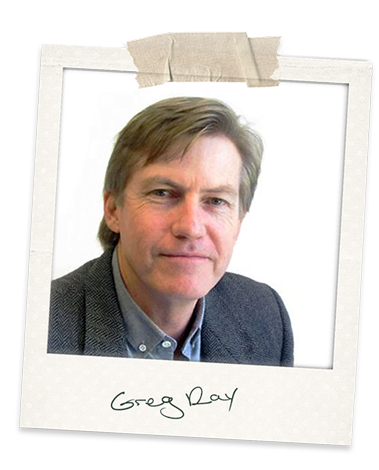Comment by Greg Ray
IF I were NSW Police Commissioner Mick Fuller, I would be furious right now.
I would be really angry about the position my police force has left me in over the historical rape allegations against the Coalition Federal Government Attorney General, Christian Porter.
It is well-known that Mr Porter named himself as the alleged perpetrator, strongly denying the allegations and also suing the ABC for publishing a report about them which did not name him.
It is also well-known that the alleged victim had been communicating for some time with police over her accusations, but that the NSW Police didn’t take a formal statement from her before her death on June 24 last year. The lack of a formal statement has been widely reported to mean that the police now can’t and won’t investigate the matter.
What would be making me very angry right now, if I were Commissioner Fuller, is that the internal processes behind the NSW police decision not to take a statement from the complainant have been dragged into the open, and they have the potential to create a terrible impression in the minds of members of the public who may be following this major story.
The facts as reported by the ABC and others are:
The woman told South Australian police in late 2019 that she had been raped in Sydney in 1988 during a debating championship. The SA police told their NSW counterparts about the allegations. In February 2020 she told police she was ready to formally report the matter and she attended Kings Cross police station in Sydney to begin the process. She didn’t complete the statement and asked if NSW police officers could go to South Australia to finish it, because she wanted a support person to be with her.
Strong support for travel request
NSW Police established “Strike Force Wyndarra” to investigate the allegations. Sex Crimes Squad detective constable Samantha Meredith applied on March 10 to travel to South Australia to have the statement completed. She noted in her application for permission to travel that the accused – “CP” – had a significant media profile within the Australian community”.
Her team leader supported the detective’s application to travel.
The head of investigation teams in the NSW Police Sex Crimes Squad, Chief Inspector Michael Haddow, very strongly supported the application to travel, using the following words, written all in capital letters: “SUPPORTED. THIS MATTER INVOLVES A VERY HIGH-PROFILE POI [person of interest] AND A DETAILED STATEMENT IS REQUIRED. THERE ARE CIRCUMSTANCES RELATING TO THIS VICTIM THAT IN MY VIEW REQUIRES 2 X INVESTIGATORS PRESENT.”
Next the request was approved by Commander of the Sex Crimes Squad, Detective Superintendent John Kerlatec.
Next, the Commander of the State Crime Command added his approval to the travel application, making it clear, apparently, that not even new rules about travel during a period of concern about the Covid-19 virus should prevent this important statement being taken.
So, it seemed that, with such powerful support almost all the way to the top of the NSW Police Force, the statement would certainly be completed.
But it was not to be. When the request arrived on the desk of Deputy Commissioner David Hudson, he refused it, writing: “Insufficient detail provided by SCC to justify why this travel cannot be deferred in accordance with Commissioner’s direction and Government policy … restricting travel to operational necessity.” Covid-19 was the reason permission for travel was denied.
The investigators were obliged to contact the complainant to tell her they were not allowed to travel to interview her. She wanted to use another method to complete her statement, by teleconference, but the investigators told her this was not going to be possible. The reasons why the statement was not allowed to be taken via teleconference have not been made public.
It was also decided not to ask South Australian police to take the statement or collect the woman’s diaries and other written evidence for their NSW counterparts.
Teleconference “not possible”
Following this series of events, the woman became depressed, and after police contacted her for a regular welfare check in June 2020 she said she no longer felt able to proceed. Next day she died. It has been reported that she took her own life at her Adelaide home.
The ABC has reported that most of the contents of a five-page internal “post-operational assessment” of the case have been redacted by the NSW Police and have not been provided to Parliament.
I am no policeman, but these facts make me feel very angry and uncomfortable.
I can only imagine how upset Commissioner Fuller must feel. In public life and politics perceptions and appearances can sometimes count for a lot.
The commissioner has already had to endure much criticism from people who seem to be uncomfortable with his revelation in 2018 that he was a neighbour of then-Treasurer Scott Morrison, who used to collect his bins.
Really, that shouldn’t matter, since we are talking about a state police force, which isn’t beholden to the federal government or the prime minister in any way. But perceptions and appearances have played a role here, with some people noting that Mr Morrison and Mr Fuller’s predecessor as commissioner of the NSW Police Force, Andrew Scipione, are both closely linked to the Hillsong Church.
Indeed, Mr Morrison has often had to defend himself against critics who don’t appear to like his Hillsong association, and who wish to remind the public that Hillsong’s wealthy founder, Mr Morrison’s close friend and mentor Brian Houston, has been accused of not telling police about historical sexual abuse perpetrated by his father and fellow-evangelical, Frank Houston.
The Hillsong “investigation”
Frank Houston’s sexual abuse was revealed at the Royal Commission into Institutional Responses to Child Sexual Abuse, prompting Brian Houston to declare that: “when I first found out about this, I immediately confronted my father and ensured he never preached or served in any ministry capacity again. There was no delay in action – from the moment we knew and he confessed, his ministry stopped.” Mr Houston’s father was allowed to resign from his church roles with no reasons given publicly, and Mr Houston sent a cheque for $10,000 to one of his father’s victims.
Since then there has apparently been an on-again, off-again NSW Police investigation into the allegations of concealment of Frank Houston’s crimes. Back in 2018 Commissioner Fuller stated that Brian Houston had “declined to be interviewed or assist police with the investigation”. Next it was reported that there was a lack of sufficient evidence to proceed with the investigation. Then, in 2019 it was stated that the matter was still under investigation after all, although little has been heard on the topic since.
Speaking of perceptions and appearances, things got awkward for Commissioner Fuller in 2019 after one of Mr Morrison’s cabinet ministers, Angus Taylor, released faked documents casting political opponent, Sydney Lord Mayor Clover Moore, in a poor light over alleged overspending on travel. The documents were nonsense, and Mr Taylor’s assertion that he downloaded them from Sydney City Council’s website was quickly discredited.
The NSW Police were called in to investigate the origin of the fakes.
The Angus Taylor phone call
It was reported that Prime Minister Morrison phoned his former neighbour, the NSW Police Commissioner, to discuss Mr Taylor’s situation before the investigation began. Interestingly, the Attorney-General, Christian Porter, was also a party to the call. The commissioner later commented that: “To be honest with you, I actually don’t feel as though the allegations themselves are serious… ”. When he was criticised over taking the phone call from two men with powerful political stakes in the possible investigation – one of whom was his former neighbour Scott Morrison – Commissioner Fuller declared that: “You can’t influence an investigation that hasn’t started”.
As it happens, the NSW Police referred the the matter to the Australian Federal Police. The AFP investigation found nobody had a case to answer over the matter of the leaking by a cabinet minister of faked documents in a bid to discredit a political opponent. Neither Taylor nor Moore were interviewed by police, it was later revealed.
Of course, a high-profile role, like police commissioner, will always brings criticism. It’s a big job, with big responsibilities. That is why it pays so much money. In fact, Commissioner Fuller is one of the highest-paid public servants in NSW, following a massive pay-rise last year, which caused some controversy at the time. On March 26, 2020, Premier Gladys Berejiklian directed the Statutory and Other Offices Remuneration Tribunal to reassess the commissioner’s salary. Four days later the tribunal agreed to raise Commissioner Fuller’s pay by about $87,000 to $649,500. Some of the government’s political opponents argued that this was offensive, given the Covid-19 pandemic and also the harsh pay-freeze applied to most front-line public servants.
But having accepted the pay-rise, as he was entitled to do, the commissioner has even more reason to be especially sensitive to those critics who are constantly watching for signs that the NSW Police Force might not be doing its job without fear or favour.
Which is why, if I were the commissioner right now, I’d be very upset at the decision to squash the strongly supported request of my detectives for permission to travel interstate to interview a complainant with terrible allegations against a high-profile public figure that could, if proven, have far-reaching consequences for Australian politics.
It’s a very bad look, and one which could so easily have been avoided.



